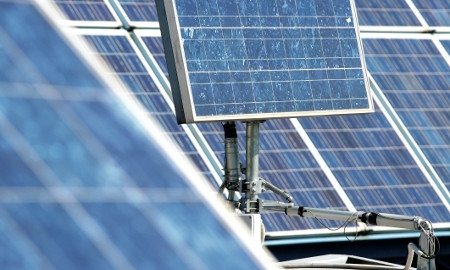Saudi Arabia, the world's biggest oil producer, has big plans to become 100% powered by renewable and low-carbon forms of energy as the government moves ahead with its commitment to invest in renewable energy, nuclear power, and other alternatives to fossil fuels.
The country produces up to 12 million barrels of oil a day, representing more than 12% of world crude production. It also has around one-fifth of the world's oil reserves, according to the U.S. government’s Energy Information Administration. Energy use per person within the kingdom is also high by world standards, because energy prices are kept so low.
Currently, Saudi Arabia's energy demand is met almost entirely by fossil fuels, with about two-thirds coming from oil and the remainder satisfied by gas. As the energy demand on the country is increasing and will reach levels of more than it will be able to meet through petroleum sources alone, the government realizes that they have to think long term and hence have a planned budget of $100 billion to invest in renewable energy programs – namely solar and nuclear energy.
Desalination and water security represent another sector related to energy in which the Saudi government would like to see more progress being made. The country faces water shortfalls in the future that could devastate the whole economy. With a fast-growing population and mounting industrial needs, the kingdom’s authorities cannot waste costly desalinated water on inefficient ventures such as wheat production. In fact, Saudi Arabia is already using desalination to cover as much as 60% of its water requirements.
Simultaneously, Saudi Arabia is taking the lead in developing nuclear technology and solar energy, two environmentally friendlier industries with enormous growth potential. Creating a balanced mix of non-fossil fuel energy is of strategic importance for the country’s long-term prosperity and energy security.
By pressing ahead with investment in renewable energy, nuclear power and other alternative energy sources, not only would it make sense from a carbon emissions point of view, but also commercially, as the government would then be freed up to use the country’s vast oil reserves for other purposes, such as the production of plastics, polymers, and other oil-based products.
Having a green economy in the kingdom would benefit Saudis through the creation of highly skilled jobs in manufacturing, technical and investment organizations as well as attracting foreign investors.

0 COMMENTS